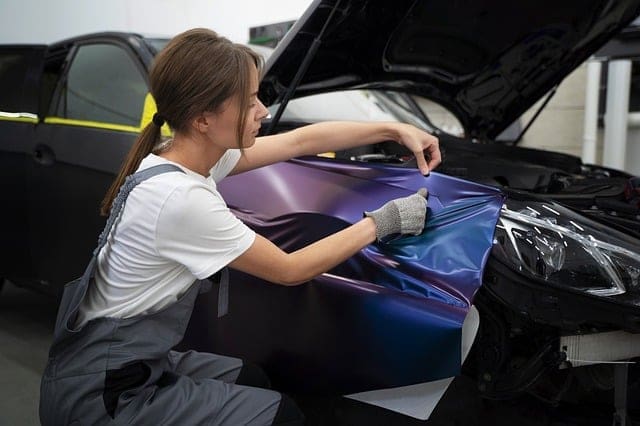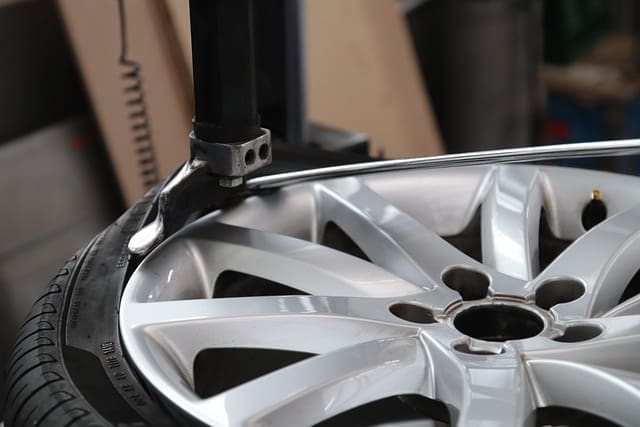Avoid costly repairs and extend the life of your used car with simple DIY maintenance tips for used car owners. In this guide, we’ll dive straight into the essential tasks that every used car owner can manage at home. From fluid checks to tire maintenance and battery care, we equip you with the know-how to keep your car reliable and ready for the road. Get started on protecting your investment today without the fluff or unnecessary expenses.
Key Takeaways
- Regular maintenance of essential fluids, such as engine oil, brake fluid, and power steering fluid, is crucial for smooth vehicle operation and to prevent breakdowns.
- Tire care, including pressure checks, tread inspection, and wheel alignment, is vital for safety, fuel efficiency, and prolonging tire life.
- Routine maintenance tasks, like battery care, spark plug replacement, and air filter maintenance, are key to ensuring efficiency, performance, and longevity of the vehicle.
Essential Fluid Checks for Your Used Car
Imagine your car as a living organism that needs to stay hydrated to function effectively. Checking essential fluids like:
- engine oil
- engine coolant
- brake fluid
- power steering fluid
- transmission fluid
Conducting routine car maintenance, such as fluid checks, is the equivalent of ensuring your vehicle is well-nourished and hydrated. Referring to your owner’s manual can help you avert unnecessary breakdowns and aid in optimal vehicle maintenance.
So, how do we go about it? Let’s break it down.
Engine Oil Maintenance
Just as blood is vital for humans, engine oil is the lifeblood of your car engine. Maintaining proper oil levels is critical for reducing friction, preventing contamination, and ensuring the smooth functioning of the engine.
Change the oil and oil filter frequently to maintain oil quality, inspect engine components, and boost your car’s performance and longevity.
Brake Fluid Inspection
Brake fluid is like the invisible superhero of your car. It transfers the force you apply on the brake pedal to the wheel hub, ensuring your car stops safely. Frequently inspecting brake fluid is necessary to ensure efficient operation of your braking system and avert potential damage.
So, don’t forget to keep an eye on your brake fluid reservoir!
Power Steering Fluid Care
Ever wondered why it’s so easy to turn the steering wheel of your car? Thank the power steering fluid! Checking and maintaining the power steering fluid routinely is vital to avoid system friction and potential pump failure.
Remember, a well-kept power steering system makes for a smooth and comfortable ride.
Tire Care and Maintenance
Tires are your car’s shoes, and just like your shoes, they need to be well cared for. Routine tire maintenance is vital to enhance fuel-efficiency, guarantee proper handling and braking, and avoid abnormal wear.
So, let’s roll into some essential car maintenance tasks, focusing on tire maintenance.
Regular Tire Pressure Checks
Proper tire pressure checks are as important as keeping a check on your body’s blood pressure. Low tire pressure can lead to increased wear, poor handling, and potential blowouts.
Frequently checking tire pressure can prolong the lifespan of your tires and improve your vehicle’s performance and safety.
Inspecting Tire Tread
Tire tread is like the grip on your shoes. It provides the traction your car needs to stay on the road, especially in wet conditions.
Regular inspection of your tire tread depth can help determine when it’s time for a tire replacement, ensuring your car always has a strong grip on the road.
Wheel Alignment and Rotation
Have you ever pushed a shopping cart that veers to one side? That’s exactly what happens when your wheels are misaligned. Proper wheel alignment ensures even tire wear, thus extending tire life and saving you money in the long run.
Plus, using wiper blades makes for a smoother and safer drive.
Battery Health and Maintenance
The battery is the heart of your car, supplying the necessary power to start your engine and run your electrical systems. Routine battery maintenance is essential to avoid unexpected breakdowns and guarantee your vehicle’s reliable operation.
Let’s delve into how you can keep your battery in top condition.
Cleaning Battery Terminals
Just like you clean your home to get rid of dust and dirt, cleaning your battery terminals is crucial to prevent disrupted connections and charging issues. It’s a simple yet effective way to ensure your car’s battery performs at its best.
Testing and Replacing Car Batteries
We all know the frustration of a dead car battery. Regular testing of your car’s battery measures its capacity and voltage during start-up, ensuring reliable operation. And when it’s time for a replacement, doing it yourself can save you money and give you peace of mind, knowing it’s done right.
Spark Plugs and Ignition System
Spark plugs are the little heroes of your car’s engine. They ignite the air-fuel mixture in your engine, creating the explosion that powers your car. Keeping your spark plugs and ignition system in good condition is vital for peak engine performance, fuel efficiency, and durability. Using the right spark plug socket can make the maintenance process easier and more efficient.
Checking and Replacing Spark Plugs
Just like changing the oil, changing your spark plugs is a key part of your vehicle’s regular maintenance. Regularly checking and replacing spark plugs maintains peak performance and high gas mileage. And the best part? It’s a task you can easily do yourself!
Ignition System Inspection
The ignition system of your car is like the starting pitcher in a baseball game. It sets the tone for how well your engine will perform. Regular inspections of the ignition system can help identify wear and tear and maintain the proper function of all components.
Air Filters: Engine and Cabin
Air filters in your car act as the lungs, ensuring your car breathes clean air. They play a crucial role in preventing contaminants like dust and debris from entering your engine and your car’s cabin.
Routine maintenance of these filters is essential for your engine’s performance and your ride comfort.
Engine Air Filter Replacement
The car’s engine air filter is responsible for filtering out harmful contaminants that can cause damage to your vehicle’s performance.
Regularly replacing the engine air filter can enhance your vehicle’s fuel efficiency and prolong the life of the engine.
Cabin Air Filter Maintenance
Ever turned on your car’s AC and been greeted by a gust of stale air? That’s where the cabin air filter comes in. Regular maintenance of the cabin air filter:
- Improves the performance of your AC system
- Filters out dust and debris from entering the vehicle’s cabin
- Ensures you breathe clean air during your journey.
Brake Pad Inspection and Replacement
Brakes are the unsung heroes of your car, providing the stopping power you need to drive safely. Routine brake pad inspection and replacement are necessary for efficient braking and avoiding potential damage.
So, let’s break it down!
Identifying Worn Brake Pads
Imagine walking in worn-out shoes. Not comfortable, right? Similarly, driving with worn brake pads can be dangerous.
Identifying worn brake pads early can help maintain braking efficiency and safety.
DIY Brake Pad Replacement
Replacing your brake pads is like getting new shoes for your car. Doing this yourself can save you a significant amount of money and ensure proper installation. And with the right tools and guidance, it’s easier than you might think!
Exterior Care: Scratches, Dents, and Paint Protection
Just as you care for your skin, your car’s exterior needs attention too. Routine exterior maintenance can prevent rust, preserve your vehicle’s appearance, and shield the paint from harm.
Let’s polish up on some exterior care tips!
Repairing Scratches and Dents
For example, scars on your skin, scratches, and dents in your car can be unsightly. Repairing these promptly not only improves your car’s appearance but also prevents rust and maintains its value.
So, let’s learn to smooth out those blemishes!

Paint Protection and Waxing
Imagine your car’s paint as its skin. Just as you protect your skin from sun damage and pollutants, car owners should ensure their car’s paint needs protection, too.
Regular paint protection and waxing can preserve your car’s finish and overall value.
Interior Cleaning and Maintenance
Stepping into a clean car can make your journey more enjoyable. Routine interior cleaning and maintenance foster a pleasant environment, enhance safety, and keep your vehicle’s interior in good condition.
Ready to dive into the details?
Upholstery and Carpet Care
Just like you care for the carpet and furniture at home, upholstery and carpet care in your car is essential. Regular cleaning can help maintain cleanliness, eliminate odors, and prolong the life of your car’s upholstery and carpet.
Dashboard and Console Cleaning
The dashboard and console of your car are like its control center. Regular cleaning can prevent visibility issues, maintain your vehicle’s aesthetics, and possibly even increase its resale value.
DIY Troubleshooting Common Issues
Solving common car problems is akin to unraveling a mystery. It can be cost-efficient and beneficial for your vehicle’s performance. Ready to play detective?
Addressing Unexplained Noises
Unexplained noises from your car can be alarming. Addressing these as soon as you notice them can help you identify potential issues and maintain your car’s proper function.
Fixing Minor Electrical Issues
Minor electrical issues in your car can be like a loose thread in a sweater. If ignored, they can lead to bigger problems. Fixing these issues promptly prevents further damage and maintains your vehicle’s electrical system.
Summary
The used car sales industry can be tricky to navigate but we have gone through DIY car maintenance; we’ve explored how to take care of your car’s fluids, tires, batteries, spark plugs, air filters, brakes, and interior and exterior aesthetics. We’ve also delved into troubleshooting common issues. Regular maintenance not only helps extend the life of your car but can also save you money in the long run. So why not give it a try? Your car will thank you!
Frequently Asked Questions
How often should I check my car’s fluids?
You should check your car’s fluids regularly, including engine oil, brake fluid, power steering fluid, and transmission fluid, to prevent breakdowns and ensure optimal performance.
What is the importance of tire maintenance?


Tire maintenance is important for maximizing fuel efficiency, ensuring proper handling and braking, and preventing abnormal wear. It’s crucial for safe and efficient driving.
How often should I replace my car’s battery?
You should replace your car’s battery approximately every five years to avoid unexpected breakdowns.
How often should I replace my car’s air filters?
You should replace your car’s engine air filter every 10,000 to 15,000 km or annually, depending on the driving conditions and your car’s make and model.
Can I perform car maintenance tasks myself?
Yes, you can perform many car maintenance tasks yourself with the right tools and guidance, such as checking fluids, tire and battery maintenance, and replacing spark plugs and air filters. Go for it!




